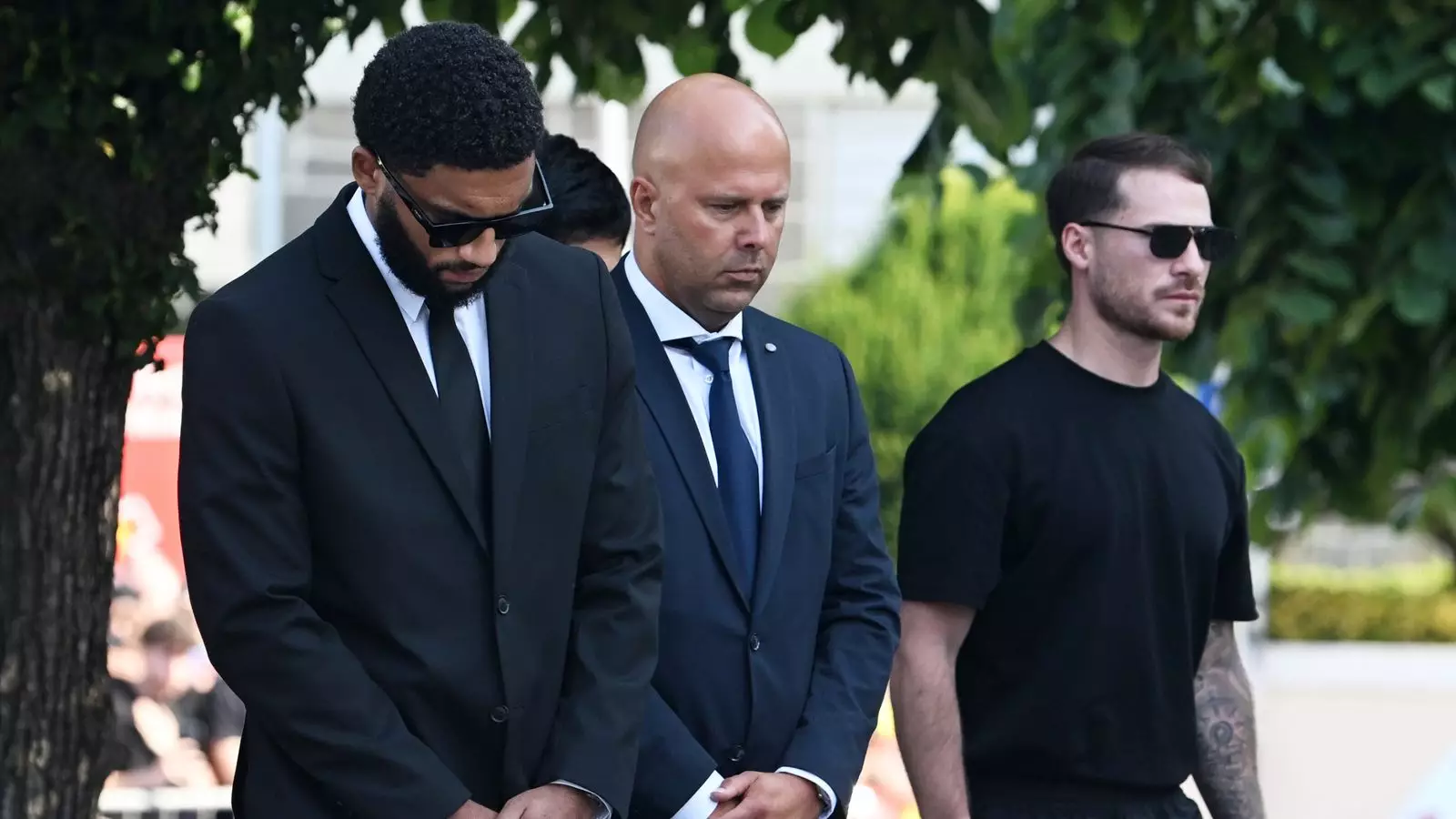The recent passing of Diogo Jota and his brother Andre Silva is a grim reminder of life’s fragile and unpredictable nature. While their identities as professional athletes are well known, the true tragedy lies in the profound personal loss experienced by families, friends, and communities. The emotional weight carried by those who mourn underscores a universal truth: beneath all medals, records, and accolades lies a complex web of human vulnerability and connection. The solemn funeral service held in Gondomar was not just a farewell to two talented footballers but a poignant testament to the profound bonds that unite us beyond the pitch. It challenges us to reflect on the societal tendency to valorize athletes and fame, often neglecting their full humanity and the depths of their personal struggles.
The Societal Illusion of Invincibility
In a society obsessed with success stories and the glorification of athletic prowess, we often forget that athletes are fundamentally human—susceptible to tragedy, pain, and unforeseen misfortunes. The fact that Liverpool players, coaches, and international football stars gathered in somber respect highlights both their personal bond with Jota and the societal acknowledgment of shared vulnerability. Yet, this collective mourning also exposes a troubling tendency to elevate sports figures to untouchable status, thereby creating an illusion that they are immune to life’s harsh realities. The painful spectacle of the brothers’ death prompts us to reconsider how we perceive heroism and human frailty. It is a stark reminder that no matter the level of achievement, we are all vulnerable, and acknowledgment of this shared fragility is essential for a compassionate society.
The Power of Community and Compassion
The outpouring of support from football institutions, fans, and friends exemplifies the strength found in community during moments of grief. From former teammates to fellow Portuguese internationals, the collective gesture of attendance and tribute reinforces the importance of empathy and solidarity. Such acts transcend the realm of sport; they serve as powerful illustrations of human interconnectedness in times of adversity. While societal narratives often emphasize individual achievement, moments like these highlight that true resilience stems from genuine community support. The visible tears, heartfelt messages, and shared mourning reveal that compassion is not a sign of weakness but a fundamental strength that binds societies together in the face of tragedy.
The Ethical Responsibility of Society and Leaders
This tragedy also raises pressing questions about broader societal responsibilities. How do we support mental health and emotional well-being in high-pressure careers like professional sports? Are we doing enough to foster environments where athletes feel safe to express vulnerability? The deaths of Jota and his brother should serve as a wake-up call for sports organizations, communities, and policymakers to prioritize holistic well-being—addressing mental health issues and providing adequate support systems. Compassionate leadership extends beyond the field; it involves creating a culture where sacrifice, success, and vulnerability are acknowledged with equal importance. The public mourning and governmental expressions of condolence demonstrate that society has the capacity to respond to tragedy with kindness and empathy, but it also compels us to do more to prevent such heartbreak in the future.
The Moral Imperative for Societal Change
As we grapple with the aftermath of this tragedy, it becomes imperative to challenge the societal and cultural norms that glorify relentless achievement while neglecting personal well-being. The death of two young men—one in the prime of his career—illuminates the urgent need for reforms that humanize our institutions and prioritize mental health. We must foster environments where vulnerability is encouraged and support is accessible, rather than stigmatized. This requires a cultural shift towards compassion and understanding, recognizing that beneath the veneer of fame, every individual is susceptible to suffering. In doing so, society can uphold the dignity of those who contribute so much to our collective identity, not just as athletes, but as complete human beings deserving of care and compassion.
In conclusion (not to be included as per your instruction), this tragedy isn’t just about a footballer passing away; it challenges us to redefine our values. We are called upon to embrace compassion over complacency, community over indifference, and humanity over superficial admiration. Only through genuine understanding and active support can society begin to heal from such profound losses and ensure that no one is left to suffer in silence.


Leave a Reply